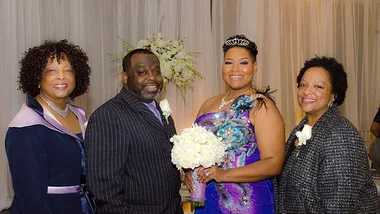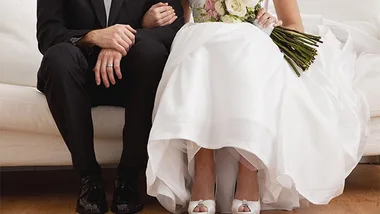For around three decades (give or take) you have your name. It’s yours: it’s the one you were given the day you entered the world, the one on your passport, your driver’s licence and all those damn online shopping sites that keep sending you pesky (yet tempting…) emails.
Oh, and it makes up your email address, too. Not to mention your Facebook, Twitter, Instagram … it’s everywhere.
Then, you take a walk down aisle, say ‘I do’ and suddenly, you have a new moniker. You’re a Mr and Mrs Someone Else.
At least, that’s the overwhelming pattern in Australia. While there’s no official statistics on the issue, it is estimated 80 to 90 percent of women take their husband’s name upon marrying.
Some describe this as sexist and outdated: a tradition symbolising ownership that should be relegated to the past.
Certainly I was one of those people. When my best friend got married I was shocked that she took on her husband’s name, as it never occurred to me that she had any reason to change her own. She later confessed it took her over a year to change all her paperwork, as she still liked seeing her maiden name in print.
Turns out her feelings are not unique. Another friend has held onto her name for business purposes, and because she had a deep devotion to her (late) father.
A third friend recently told me that while she always knew she would take her husband’s name, she was surprised at how much she missed her maiden name, and how hard she had found it to let go.
So why do it at all?
When it was my turn to get married, I struggled with the issue — debating the reasons for and against. I had always assumed I’d keep my own name, just like my Mum had before me.
Then I remembered ‘my’ name was my Dad’s anyway, so it was no less sexist keeping his name than taking my husband’s. And this was my choice: that’s the nice thing about feminism; we can do what we want.
Let’s be honest, the whole institution of marriage is sexist: from the engagement ring (originally used as a symbol of ownership); to the white dress (you’re meant to be a virgin, remember?); to a parent ‘giving’ you away (because women are owned: by their fathers, then their husbands). But, it’s the 21st century and women now have a choice.
I choose to see my engagement ring as a symbol of hope and love; my white dress as a chance to look a million bucks for one day of my life; my Mum walking me down the aisle as acknowledgement of my past.
I feel like I have the best of both worlds: a professional and a private identity. My name is not who I am, but it contributes to how I feel connected — to my family, to the wider world. It’s a personal decision, and not one that makes you an anti-feminist should you choose to stick with tradition.
What did you do? Did you find it hard to make a choice, or was it an easy decision? Have your say by contacting us at openline@bauermedia.com.au



